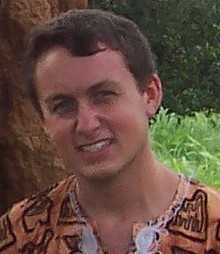Week 1: Fogarty-Ellison Orientation
I’m writing now from the Fogarty-Ellison orientation in Bethesda, Maryland. It has been a great three days thus far, as the 23 U.S. and 24 foreign site fellows have gathered together at the NIH in Bethesda for 2 weeks of orientation. It has been great meeting fellows from such places as Brazil, Zambia, Peru, Bangladesh, India, Thailand, and Botswana. It has also been great to again see many of the US students whom I met at the program selection conference in March. The Fogarty fellows are an incredible group of people, with diverse backgrounds, experiences, and interests. It has been a great pleasure to meet all of the other fellows, and I look forward to the remainder of our time in Bethesda.
Thus far, we have had introductory sessions, sessions on the roles of the World Bank and World Health Organization (WHO), and sessions on the history of clinical research and the process of grant writing. Also, we have had a few sessions focusing on the state of the science with respect to specific diseases. Thus far, we have heard presentations on maternal and child health, malaria, and tuberculosis.
In our free time in the evenings, we all have tended to gather for dinner in large groups of US and foreign-site fellows at various restaurants in Bethesda. I had Thai food on Wednesday, and tonight a group of 21 of us ate at an Indian restaurant. You might imagine how hard it was for us to find a restaurant in Bethesda on a Friday night with a table for 21…
I thought I’d leave you with a few concepts discussed in some of the presentations thus far. These are facts and concepts with which I and many of the other fellows are quite familiar, but I realize that some of those reading this may not be as familiar with the status of health around the world.
Economics: Greater than 1 billion people in the world live on less than $1 per day. Approximately half of the world’s population lives on less than $2 per day.
Poverty and Health: Poverty is the result of poor health. We often assume that health is poor in developing countries due to poverty, but in many respects, it is the disability resulting from poor health that leaves many countries in poverty. In reality, both sides of this statement are likely true, but we often fail to consider the economic impacts of poor health.
I hope to revisit some of these issues in later posts. Orientation has been great thus far, and tomorrow (Saturday) will be a day off. We plan to visit some of the museums and monuments in Washington D.C. with some of the foreign site fellows. Despite living so close to D.C., it actually has been several years since I’ve visited the Smithsonian or monuments of D.C., so I’m looking forward to the day tomorrow. I may also catch a Washington Nationals game tomorrow night with some of the other fellows.




1 Comments:
You ate Indian and Thai food? WOW! The wonders never cease! Just kidding of course, but I don't know how much of your readership appreciates the "globalization of Chris" that I have witnessed over the last eight years. Keep the updates coming!
Post a Comment
<< Home